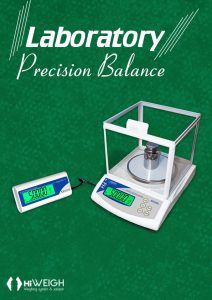Laboratories use precision balances to weigh samples, which can then be used as a raw material for further processing. The quality of the final product would depend on the exact weight of the raw material used. This is more so in the pharmaceutical industry where precision in weight can be a determinant for life or death. So, while scouting for a precision balance for laboratory, it is better to keep certain attributes in mind. These can range from the purpose, environment, and type of materials, to the volume of materials to be weighed.
Importantly, a precision balance should ideally be kept in an inert environment, free from dust and water. Besides, should there be air drafts, temperature fluctuations, or vibrations, the balance might not function to its optimum level. Moreover, there can be weighing conditions such as the ones involving toxic or radioactive materials. In such cases, a proper certification needs to be obtained along with providing training to the handling staff. Also, the choice is dependent on the frequency of use. In other words, should the balance be used frequently, it has to be robust, durable and reliable to get accurate results.
Accuracy: This is arguably the sole purpose of having a precision balance. However, in many cases, the users are not sure of the level of accuracy required of the balance. This underestimation of the need for accuracy as per the international guidelines can lead to the buying of a balance that is inappropriate to the need. The accuracy factor should take into account the tolerances as well.
Readability: The balance should display results that are readable especially in the condition of darkness or too much of sunlight (read in open spaces). There may be times when the balance is needed to be used in a semi or fully dark condition. And unless the readability of the balance is high, the people measuring the weight can have a tough time. The balance should have bright LEDs powered by a rechargeable battery.
Weighing sensor or gauge: While choosing a balance you must check if it contains a sensor or a strain gauge. The latter is a metallic object that gets deformed when a weight is placed on it. The resultant strain leads to a change in the electrical resistance of the metal, which incidentally is commensurate with the magnitude of the strain. On the other hand, precision scales generally have sensors based on an electromagnetic force. So, when the weight is placed, the coil undergoes a change in its position triggering a current surge. As the intensity of the current is proportional to the weight of the object to be weighed, the exact value of weight is calculated.
Presence of an enclosure: This is more applicable for precision balance as the enclosure can keep the contaminants out and prevent the samples from being affected by draft, vibration or temperature fluctuation.
Conclusion
While buying a precision balance for laboratory, it is better to keep some attributes in mind such as accuracy, built-in applications, user safety, warranty of the spare parts, safety from contamination, and protection from corrosion. These attributes would ensure the balance functions accurately, seamlessly and for a long time.

